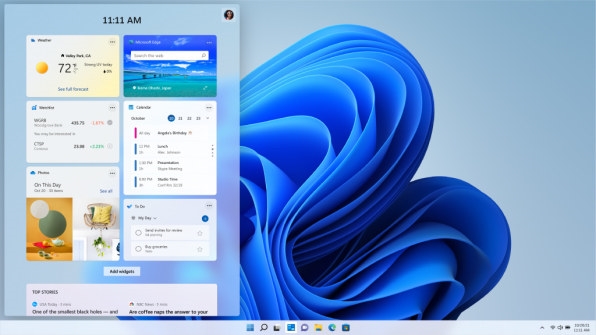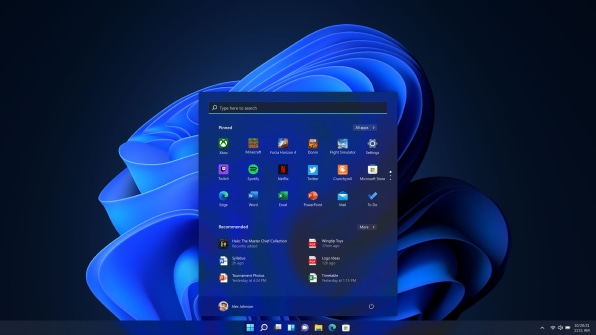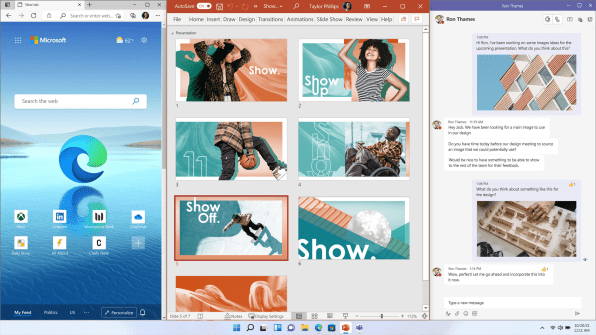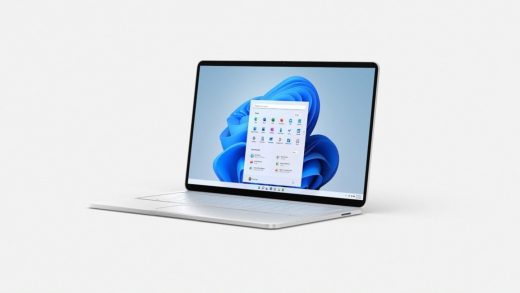Windows 11 makes keeping your old PC a lot harder
Start digging around for examples of extremely old PCs running on modern versions of Windows, and you’ll find some amazing feats of longevity.
ZDNet’s Adrian Kingsley-Hughes once marveled at how a PC from 2008 ran Windows 10 without issue. PCWorld’s Gordon Mah Ung installed Windows 10 on a Dell Dimension desktop from 2006 and described it as “super-smooth” and “surprisingly responsive.” Users on sites such as TenForums have gone back even further, having success with Windows 10 on Pentium 4-powered desktops from 2004.
All of which may explain the shock that ensued when Microsoft announced its system requirements for Windows 11, which launches at the end of this year. Microsoft says it’s only confident that certain newer Intel, AMD, and Qualcomm chips can meet all of those requirements, which means PCs from mid-2017 or earlier may not get the upgrade.
Microsoft says that Windows 11’s strict requirements are necessary to cut down on security issues and glitches. But in slaying those two classic Windows demons, it’s also ending a record of longterm support that has typically been one of Windows’ defining strengths.
Stricter-than-ever hardware requirements
The remarkable thing about Windows is that its hardware requirements have barely changed over the past 14 years. From Windows Vista through Windows 10, Microsoft has demanded a meager 1 GHz processor and 1 GB of RAM (though the company did double its required storage from 16 GB to 32 GB in Windows 10). Running Windows on a PC with those minimum specs wouldn’t always yield the greatest experience, but Microsoft wouldn’t stop you from trying.

Windows 11 demands a greater amount of storage and RAM—64 GB and 4 GB, respectively—but the real sticking point has to do with processors and security features such as Trusted Platform Module 2.0 support.
Microsoft’s Windows 11 requirements could cut off some PCs that are less than five years old.
The gist is that Microsoft wants to mandate features like Windows Hello (for face or fingerprint recognition), device encryption, and secure boot for their ability to reduce malware. Microsoft says it’s only confident that at least an 8th-generation Intel, AMD Zen 2, or Qualcomm 7 or 8 Series processor can meet all of those requirements, though it hasn’t ruled out supporting processors that are a generation earlier.
The Verge’s Tom Warren also speculates that Spectre and Meltdown, a pair of infamous vulnerabilities that affected two decades’ worth of computer chips, might also explain the decision; Intel didn’t start implementing hardware fixes until 2018 with some of its 8th-generation processors.
Tying new security requirements to new versions of Windows isn’t without precedent. Starting with Windows 8 in 2012, Microsoft has required a processor feature called NX bit, which prevents attackers from executing malware through a portion of a system’s memory.

But at that point, NX bit had already been shopping on most processors released in the last eight years. By comparison, Microsoft’s Windows 11 requirements could cut off some PCs that are less than five years old. Even those whose hardware is capable of running Windows 11 may need to do some tweaking: On my desktop, which has a two-year-old AMD Ryzen 5 processor, I had to tinker with command-line and BIOS settings before Microsoft’s Health Check app gave me the all clear for Windows 11.
At the same time, Microsoft is giving PC owners less time to either upgrade or replace their current hardware. Although Windows 10 arrived in 2015, users of Windows 8.1 still have until January 2023 before Microsoft cuts off support. Before that, Microsoft gave seven years of additional support to Windows 7, Windows Vista, and Windows XP users after launching major upgrades. With the launch of Windows 11, Microsoft says that it’s cutting that grace period down to just four years.
The disposable age
Until now, the software upgradability of Windows PCs has been a welcome exception in an era when tech seems designed for disposability.
With new Macs, software support tends to last between five to eight years. The 2012 launch of OS X 10.8 Mountain Lion, for instance, cut off all pre-2007 Macs, while the first version of OS X in 2001 required a Power Mac G3 from at least 1997.
Google’s Chromebooks originally had a support lifespan of just five years as well, and even now Google only guarantees eight years of updates. Given that many Chromebooks remain on sale for years after launch, customers can easily buy devices that are just two or three years away from their expiration dates.
Smartphones, meanwhile, have even shorter lifespans. Android phone makers often abandon their hardware after a couple of years, and while Apple does a much better job supporting iPhones over the long term, it’s only now starting to support devices for more than five years. (The forthcoming iOS 15 update with support phones as old as the iPhone SE and iPhone 6s from 2016.)
Having an up-to-date device isn’t just about getting new features. It’s also important for receiving critical security fixes and support from third-party apps. Windows has traditionally allowed users to enjoy those benefits for a decade or more, and even if those users decided to buy new hardware, they could still sell, donate, or hand down their older machines knowing they’d continue to be supported.

With Windows 11, all of that will get harder to do. The upgrade will require much newer hardware compared to previous versions, and those who continue to use Windows 10–by necessity or choice—will have less time before that version stops receiving any updates at all, including critical security fixes.
Perhaps Microsoft didn’t get enough credit for going against the trend of disposable devices in the past. But now that it’s on the verge of discarding that legacy, it’s certainly deserving of criticism.
(67)



